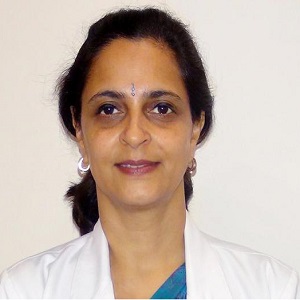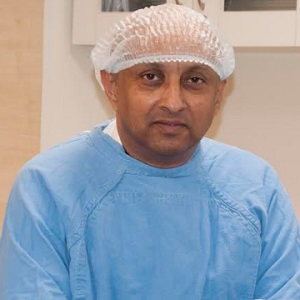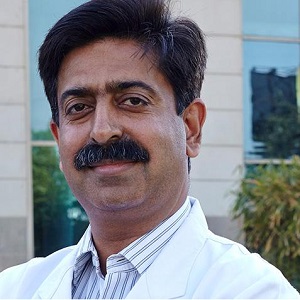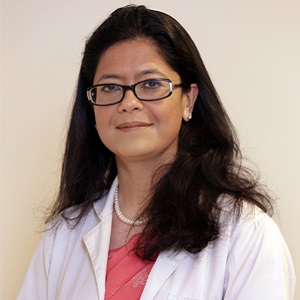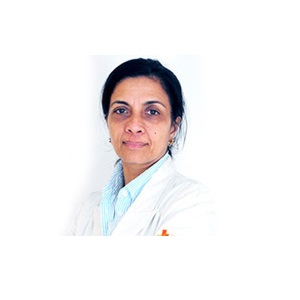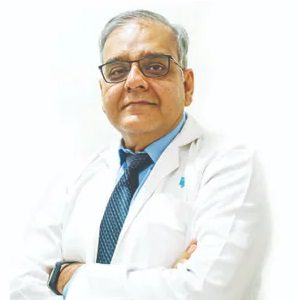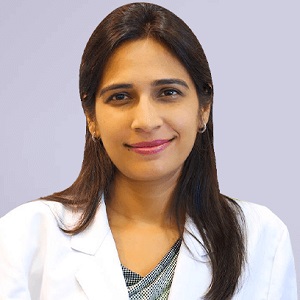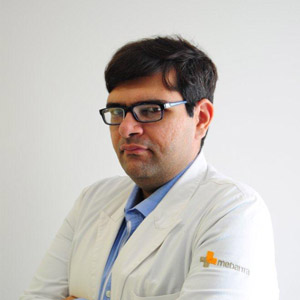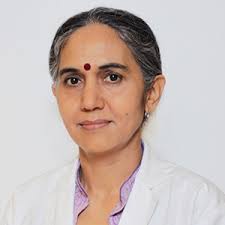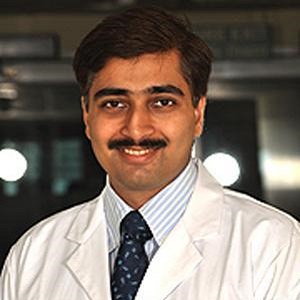Best Doctors in India for Radial Keratotomy
- Ophthalmologist, Eye Surgeon, Gurugram, India
- Over 22 years’ experience
Profile Highlights:
- Dr. Anita Sethi’s proficiency lies in LASIK Surgery, Phaco Eye Surgery, Refractive Surgery, Ptosis & other Oculoplastic Surgery, Cornea treatment, and Cataract treatment.
- She has a special interest in Orbital & Oculoplastic surgery and has worked extensively with trauma and Acid burn victim. She is known to be among the best ophthalmologists in India.
- Ophthalmologist, Eye Surgeon, Gurugram, India
- Over 36 years’ experience
Profile Highlights:
- Dr. Sudipto Pakrasi is an immensely talented and extremely popular Eye Surgeon, famous for operating on most celebrities in India. Known to be one of the finest Ophthalmic Surgeons in the country, Dr. Sudipto Pakrasi has also been a pioneer in innovations as well as the Art of Cataract surgery over the past 36 years.
- He is known especially for his insightful medical treatment approach for cataract surgeries and glaucoma.
- Ophthalmologist, Eye Surgeon, Gurugram, India
- Over 18 years’ experience
Profile Highlights:
- Dr. Neeraj Sanduja is a well-trained Ophthalmologist, with huge experience in the management of vitreoretinal conditions.
- He is known to perform around 60 FFA and 75 Lasers treatments in OPD in a month. He is actively involved in ROP screening and treatment awareness programs.
- His previous experience includes a stint at William Beaumont Hospital, Michigan, the USA as a Visiting Fellow in Paediatric Retina.
- Eye Surgeon, Ophthalmologist, New Delhi, India
- Over 24 years’ experience
Profile Highlights:
- Dr. Parul Sharma is a renowned ophthalmologist and eye surgeon with a track record of outstanding performance throughout her career in academics, diagnostics, and surgery.
- She is known to keep an active interest in the latest developments of most subspecialties in ophthalmology including academics. Dr. Parul Sharma also gained experience from prestigious national and international eye institutes.
- Ophthalmologist, Gurugram, India
- Over 35 years’ experience
Profile Highlights:
- Dr. Careen Pakrasi is one of the best ophthalmologists in Gurugram. She practiced as a senior resident in Safdarjung Hospital from 1994 to 1996. Dr. Carreen Pakrasi is also a post-graduate Diploma holder in hospital management from IHFW.
- Dr. Careen Pakrasi has over three decades of rich professional experience in her field. Her area of interest lies in the treatment of Cataracts, Refractive Surgery, Glaucoma, and UVEA. She used to be the director of Pakrasi eye associates from 1996 to 2013.
- Ophthalmologist, New Delhi, India
- Over 32 years’ experience
Profile Highlights:
- Dr. Aniel Malhotra is a renowned eye surgeon in Delhi and has experience of nearly 32 years in the field.
- Since 1996 he has been working as a Senior Consultant at Indraprastha Apollo Hospital, New Delhi.
- Dr. Malhotra specializes in squint surgery, LASIK Surgery, and cataract surgery. Besides these, some significant services offered by the doctor are Cornea transplant, retinal detachment surgery, Diabetic Retinopathy, DALK, DSEK, and Cosmetic Eye Surgery.
- He got a fellowship under Padma Shree Dr. S.S. Badrinath from renowned eye hospital, Shankar Netralaya, Chennai.
- Ophthalmologist & Eye Surgeon, Gurugram, India
- Over 20 years’ experience
Profile Highlights:
- Dr. Shibal Bhartiya is an eye surgeon, who specializes in glaucoma and ocular surface diseases.
- Dr. Bhartiya is the Executive Editor of ‘Current Glaucoma Practice’, which is the official journal of the International Society of Glaucoma Surgery. She is also the Editor in Chief of Clinical and Experimental Vision and Eye Research. She is the founder-director of Medequill, a language editing service that also provides web content for medical services. Dr. Bhartiya has more than ten textbooks on glaucoma and ophthalmology to her credit.
- Ophthalmologist, Gurugram, India
- Over 12 years’ experience
Profile Highlights:
- Dr. Indrish Bhatia is a well-known ophthalmologist with a rich experience of 12 years across a host of leading medical institutions under his belt and currently works at FMRI as a Senior Consultant.
- Throughout his career, he has performed over 1000 vitreoretinal surgeries. He has also given over 6000 intravitreal injections. He also has a special interest in diabetic retinopathy.
- Eye Surgeon, Ophthalmologist, New Delhi, India
- Over 20 years’ experience
Profile Highlights:
- Dr. Amanjot Singh has been practicing medicine for 20 years. Her specialization lies in cataract surgery by phacoemulsification and LASIK. She has been conducting training in Phacoemulsification at SGHS hospital in Sohana and at Centre for Sight, New Delhi prior to joining Max Healthcare.
- She has multiple specializations including refractive surgery, corneal surgery, eye muscle surgery, oculoplastic surgery, etc. Dr. Amanjot is a member of the Delhi Ophthalmic Society and the Bombay Ophthalmic Society.
- Eye Surgeon, Ophthalmologist, Gurugram, India
- Over 15 years’ experience
Profile Highlights:
- Dr. Sameer Kaushal is a qualified eye surgeon who spent a few years in the Cornea, Cataract, and Refractive Surgery Unit of AIIMS gaining expertise in the treatment of eye diseases, especially corneal disorders.
- Dr. Kaushal also gained valuable experience in performing various eye surgeries, especially anterior segment surgeries including phaco surgery for cataracts, LASIK, and corneal transplantation. His expertise extends to the latest treatment modalities which include sutureless corneal transplants and artificial corneas.
- Throughout his career, Dr. Sameer Kaushal has also been involved in teaching as well as research activities.
Best Hospitals in India for Radial Keratotomy
Indraprastha Apollo Hospital, New Delhi
- City: New Delhi, India
Hospital Highlights:
- Indraprastha Apollo Hospital is a 700-bedded multispecialty hospital in the heart of the capital of India. It is a part of Apollo Hospital group, one of India’s most reputed healthcare chains. Indraprastha Apollo Hospital has been accredited by Joint Commission International, making it the first internationally accredited hospital in the country in 2005.
- There are 52 specialties in the hospital with one of the best cardiology centers in the country. The hospital is also equipped with State of the art infrastructure facilities with the largest Sleep Lab in Asia and the largest number of ICU bed facilities in India.
- The hospital also has one of the largest dialysis units in India along with a dedicated Bone Marrow Transplant unit.
- The latest and highly advanced technologies that are installed in the hospital include Da Vinci Robotic Surgery System, PET-MR, PET-CT, Cobalt-based HDR Brachytherapy, Brain Lab Navigation System, Tilting MRI, Portable CT scanner, 3 Tesla MRI, 128 Slice CT scanner, DSA Lab, Endosonography, Hyperbaric Chamber and Fibro scan.
Fortis Memorial Research Institute, Gurugram
- City: Gurugram, India
Hospital Highlights:
- Fortis Memorial Research Institute is a multi-super-specialty, quaternary care hospital with 1000 beds. The hospital comprises reputed clinicians, and international faculty and is also equipped with cutting-edge technology. The hospital is a part of Fortis Healthcare Limited, a reputed chain of private hospitals in India.
- It is a NABH-accredited hospital that is spread across 11 acres of land and has a capacity of 1000 beds. The hospital has 55 specialties and is one of the premier health care centers in the Asia Pacific region popularly known as “the Mecca of Healthcare”.
- The hospital has 260 diagnostic centers and is also equipped with the latest and advanced techniques that include 3 Telsa which is the world’s first Digital MRI technology. The hospital also has world-class Radiation Therapy techniques which have been developed by leading technology experts from Elekta and Brain Lab.
Apollo Hospital, Chennai
- City: Chennai, India
Hospital Highlights:
- Apollo Hospitals, Chennai, is one of the best hospitals for heart care in India. Over the years, Apollo has expanded all over India, as a healthcare chain.
- India’s first ‘Only Pancreas’ transplant was performed in Apollo Hospital. The hospital is known for successfully performing Asia’s first en-bloc combined heart and liver transplant, and over the years, it has attained a remarkable achievement in the global healthcare space. Around 3-4 organ transplants are performed in the hospital per day.
- Equipped with over 500 beds, this hospital in Chennai was established in 1983 and since then has been among the most preferred hospital for patients from all over the world.
- The hospital holds accreditation of the NABH and JCI and is the first hospital in India to be ISO 9001 and ISO 14001 certified. It is also the first South Indian Hospital to receive subsequent reaccreditation from the JCI USA 4 times.
Medanta-The Medicity, Gurgaon
- City: Gurugram, India
Hospital Highlights:
- One of India’s best and largest multi-specialty hospitals, Medanta was built with the aim to bring India to the highest standards of medical care. The hospital has been providing the best medical services to its patients, since its inception, with care, commitment, and compassion.
- Equipped with 1250 beds, the hospital was founded by Dr. Naresh Trehan in the year 2009 with an aim to provide the best medical care at affordable costs. The hospital is spread across 43 acres and includes 45 operation theatres and 350 beds dedicated solely to ICU. The hospital includes over 800 doctors, and more than 22 specialty departments and has a dedicated floor for individual specialty in order to offer the best services under one roof.
- The hospital is considered one of the premier institutes in India for Cardiac Care and includes staffs and members of high caliber. The hospital has 6 distinct centers of excellence.
Max Super Specialty Hospital, New Delhi
- City: New Delhi, India
Hospital Highlights:
- One of the well-regarded providers in India committed to the highest standards of clinical excellence and patient care, Max Super Specialty Hospital is a part of Max Healthcare, which is the second-largest healthcare chain in India. Regarded as one of the most well-regarded healthcare providers in the country, Max Super Specialty Hospital is committed to the highest standards of clinical excellence as well as patient care. The hospital is also equipped with the latest technology as well as cutting-edge research. The hospital is known to deliver and ensure the highest level of patient care.
- The hospital has more than 500 beds and offers treatment for over 35 specialties. The hospital also holds the credit of having installed the first Brain Suite in Asia. This is a highly advanced Neurosurgical machine that allows MRI to be taken while surgery is ongoing.
- Other advanced and latest technologies are also installed in the hospital such as the 1.5 Tesla MRI machine, 64 Slice CT Angiography, 4D ECHO, LINAC, and 3.5T MRI machine.
Artemis Hospital, Gurugram
- City: Gurugram, India
Hospital Highlights:
- One of the most well-known hospitals in the Delhi NCR, Artemis Hospital is the first hospital in Gurugram to get accredited by the Joint Commission International.
- With more than 40 specialties, the hospital has been designed to be one of the most technically advanced hospitals in the country, with the best medical and surgical health care. The hospital has eleven special and dedicated centers, for Heart, Cancer, Neurosciences, etc.
- The latest technologies in the hospital include Endovascular Hybrid Operating Suite and Flat panel Cath Labs for the cardiovascular department, 3 Tesla MRI, 16 slice PET CT, 64 Slice Cardiac CT Scan, HDR Brachytherapy, and highly advanced Image Guided Radiation Therapy techniques (LINAC) are installed in the hospital.
- The hospital has won several awards as well, since its inception.
Gleneagles Global Hospitals, Chennai
- City: Chennai, India
Hospital Highlights:
- Established in 1999, Gleneagles Global Hospital, Chennai, is one of the top healthcare facilities in Southern India. It is part of the Gleneagles Hospital Chain, which is the fourth largest healthcare chain in the country. The hospital specializes in multi-organ transplants of kidneys, liver, lungs, heart, etc.
- The hospital has an excellent infrastructure and state-of-the-art lab and equipment set-up. The hospital boasts cutting-edge technologies, a highly skilled team of doctors and surgeons, and trained support staff. Located in Perumbakam, Chennai, it is one of India’s premier health care destinations. The hospital has performed some of the most complex surgical and clinical procedures in India including multi-organ transplantations.
- The hospital’s lung transplantation program is one of the best in the country. The hospital is known for having performed India’s first single lung transplant and first minimal invasive lung transplant. It is also the only Indian hospital to be associated with King’s College Hospital, London, United Kingdom for liver transplantations.
Fortis Hospital, Mulund, Mumbai
- City: Mumbai, India
Hospital Highlights:
- Fortis Hospital in Mulund is a 315-bed multi-speciality tertiary care hospital with five JCI accreditations that offers a wide variety of diagnostic and therapeutic services. The Fortis Hospital in Mulund delivers patient-centred treatment with cutting-edge technology, highly skilled and experienced surgeons, and paramedical staff.
- This institution houses Maharashtra’s largest multi-organ transplant centre. It is also the first heart transplant centre in western India to conduct 100 or more consecutive heart transplants in under four years. It is the only hospital in the city to have multi-organ transplants and has handled the youngest patient for angioplasty. Fortis Hospital Mulund now boasts the first advanced surgical robot in central Mumbai.
- Cardiology and heart surgery, urology, nephrology, neurosciences, orthopaedics, digestive care, emergency and critical care, and maternity care are among the services provided by the hospital.
Kokilaben Dhirubhai Ambani Hospital, Mumbai
- City: Mumbai, India
Hospital Highlights:
- Kokilaben Dhirubhai Ambani Hospital, Named after the wife of Indian industrialist Dhirubhai Ambani, the founder of Reliance Industries, this is one of the top hospitals in Mumbai. This 750-bed multi-specialty hospital became operational in 2009. Known as one of India’s most advanced tertiary care facilities, the hospital is designed to raise India’s global standing as a healthcare hub, with an emphasis on excellence in clinical services.
- Kokilaben Dhirubhai Ambani Hospital uses Protocol and Care Pathway based treatment models to ensure the best outcomes for patients.
- The hospital represents a confluence of top-notch talent, cutting-edge technology, state-of-the-art infrastructure, and, most importantly commitment.
- The hospital also holds the accreditation of the NABH, NABL, CAP, and JCI.
- The hospital has been recognized as the No. 1 Multispecialty Hospital in Mumbai and the West Zone for the fifth year in a row in 2020 by The Week.
Fortis Escorts Hospital, New Delhi
- City: New Delhi, India
Hospital Highlights:
- Over the last 33 years, the Fortis Escorts Heart Institute has set new standards in cardiac treatment with groundbreaking research. It is now known around the world as a centre of expertise for Cardiac Bypass Surgery, Interventional Cardiology, Non-invasive Cardiology, Paediatric Cardiology, and Paediatric Cardiac Surgery.
- The hospital has cutting-edge laboratories that perform a wide range of diagnostic tests in Nuclear Medicine, Radiology, Biochemistry, Haematology, Transfusion Medicine, and Microbiology.
- Fortis Escorts Heart Institute boasts a diverse group of bright and experienced doctors who are backed up by a team of highly qualified, experienced, and devoted support professionals as well as cutting-edge equipment such as the recently installed Dual CT Scan.
- Approximately 200 cardiac doctors and 1600 personnel currently collaborate to manage over 14,500 admissions and 7,200 emergency situations each year. The hospital now has a 310-bed infrastructure, as well as five cath labs and a slew of other world-class amenities.
Radial Keratotomy
Radial Keratotomy was one of the common ways of treating nearsightedness, also known as myopia. However, with the rise of newer procedures, such as LASIK, it is now generally considered outdated.
Purpose
Procedure
In a radial Keratotomy procedure, the surgeon makes tiny but deep incisions, in the cornea with the goal of flattening it. Since myopia generally results in excessive curvature of the cornea, this procedure can generally help to reduce the nearsightedness as well as astigmatism.
Risks & complications
Though most patients generally praised the effects of Radial Keratotomy, many have suffered permanent vision damage as well as other long-term complications. Some of the complications are:
Weakened corneas- The corneal incisions done during this procedure heal in the wake of the surgery, but those sections of the cornea do not regain their strength fully. Therefore, patients who have undergone the procedure often deal with permanently weakened corneas. The extent of the damage generally depends on the extent of the original surgery.
Risk of rupture- Since the incisions do not heal fully, they can leave the eye more vulnerable to rupture. Any trauma might cause the incisions to rupture and reopen, which can cause infection, astigmatism, and other serious problems. Patients who have gone through the procedure are therefore strongly encouraged to wear protective eyewear during contact sports or any such activities where their eyes might be vulnerable.
Ocular infections or inflammation- Radial Keratotomy incisions heal slowly and sometimes incompletely. As a result, an eye that has undergone the procedure can be more prone to infection or irritation than an eye that has not. Even minor trauma or contact, like rubbing the eyes—can irritate the incision scars which can cause bacterial infections. Irritation or trauma might also cause blood vessels to grow into the incisions, which can damage or destroy the cornea permanently.
Light sensitivity- Some patients who undergo the procedure might have the incisions extending into their pupil or their visual axis. This might cause mild to severe light sensitivity or photophobia and require the patient to wear dark glasses for improving these symptoms.
Irregular astigmatism- Since the results of the procedure are unpredictable in the way they heal long term, the patient may end up with irregular astigmatism and might also require specialty contact lenses in order to achieve their visual potential.
In addition to these complications and risks, the patients of this procedure might also experience dry eyes, double or triple vision. Also, according to a few studies, patients who undergo radial Keratotomy to treat nearsightedness, eventually, shift towards farsightedness.

